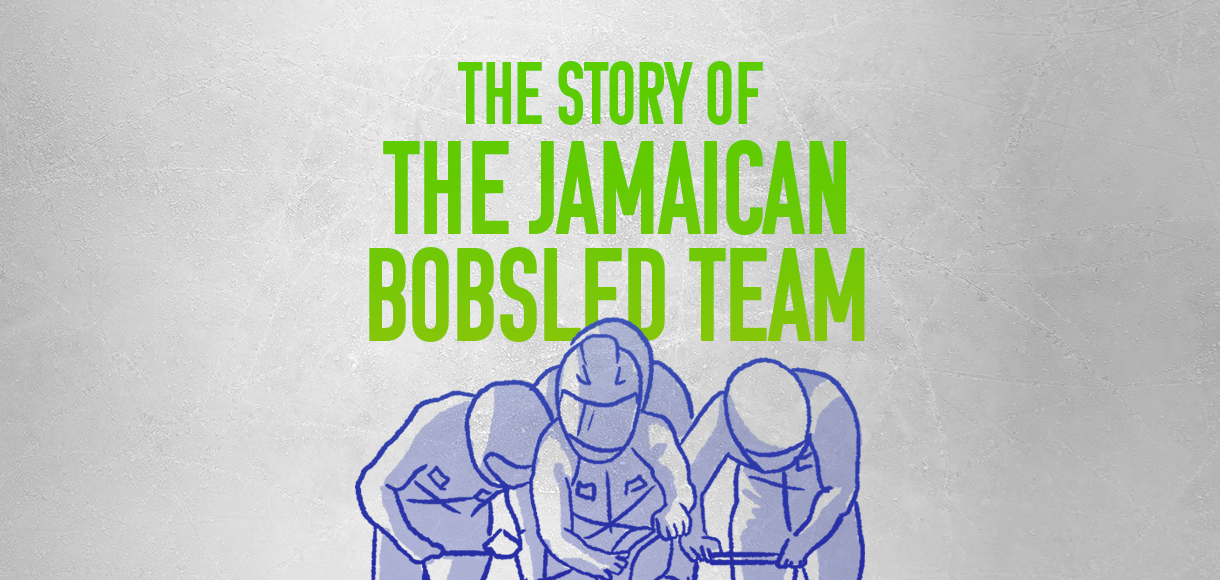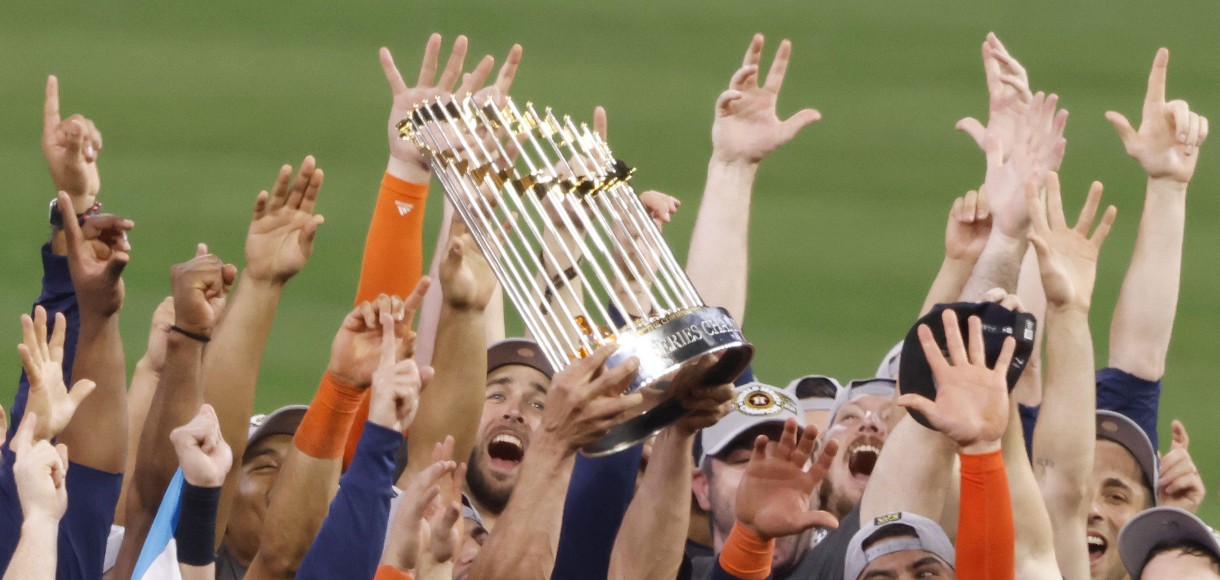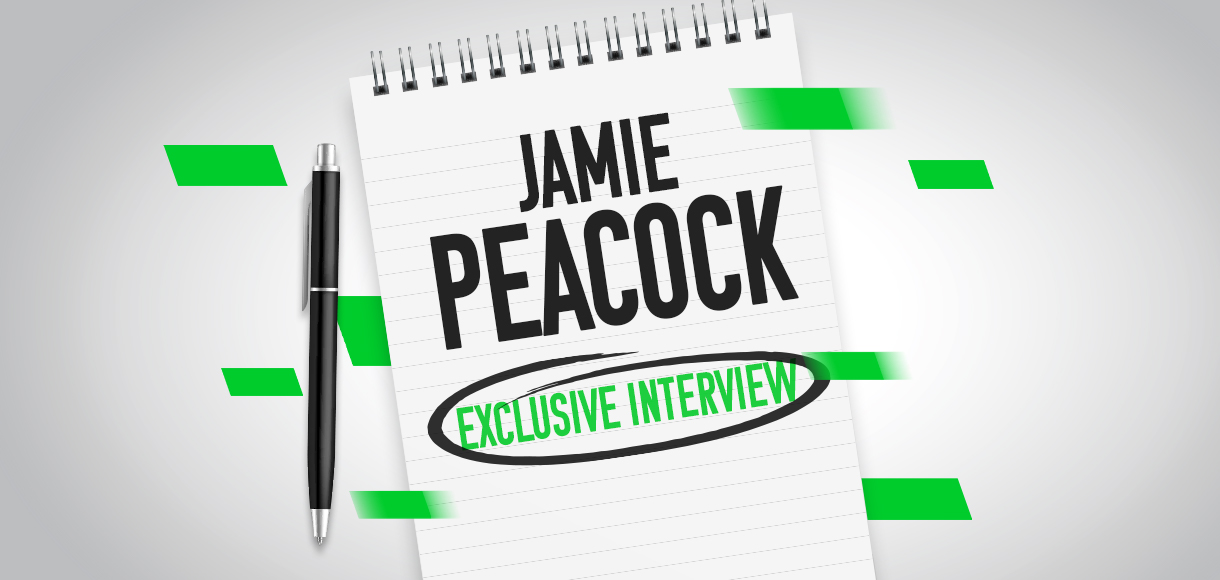The story of the Jamaican bobsled team

Immortalised by Hollywood film Cool Runnings, our exclusive interview tells the story of how Jamaica came to compete in the Winter Olympics.
“I remember saying that it was the most ridiculous idea ever conceived by a man, and nobody could ever get me to go on one of those things,” says Devon Harris, founding member of the Jamaican bobsled team.
“Any normal-minded person would think it’s a crazy, hare-brained idea. I’m not sure what the context could be for it to not to seem like a strange thing.”
He has a point. Aside from the all the other peculiarities, the average winter temperature in Jamaica sits at around 24 to 30 degrees Celsius.
It’s not the type of weather that makes you think of anything remotely wintry, let alone sliding down a track made of ice sat inside a fibreglass sledge.
Yet there will be Jamaican representation in the bobsled competition for the eighth time at the 2022 Winter Olympics.
It all started 34 years ago, when Harris and his team were finally convinced by the proposition.
“Two Americans who lived in Jamaica saw pushcart derby, which is a sport where crazy guys go down the side of the mountain in a cart,” says the three-time Winter Olympian, “and it kind of looked like bobsledding to them.”
The pair, named George Fitch and William Maloney, begun to put together a Jamaica team, with one eye on the imminent 1988 Calgary Winter Olympics.
Harris was in the army at the time, with Fitch and Maloney on the lookout for people who could run, a crucial part of a bobsled team.
“After being turned down by the summer Olympic team, they came to the army looking for athletes,” says Harris, speaking exclusively to sports betting firm Betway. “I guess that was the only place you could find guys who were brave or foolish enough to take it on.
Despite not being initially struck by the idea of a Jamaica bobsled team, Harris soon realised that this was an opportunity to fulfil a personal ambition.
“I had Olympic aspirations and had hoped to compete in the ’84 games in Los Angeles,” he says. “I was a middle-distance runner and my idol was Lord Sebastien Coe.
“But when my Colonel told me that these guys had approached me for bobsled trials – geez, I switched. I didn’t know how I was going to make the team, but I just knew I had to.
“I honestly don’t think he expected me to do it. If I didn’t want to, all I had to do was turn up and go through the motions, but I’m not wired that way man.
“It was all hands on deck, a total commitment. Once we got selected, the question wasn’t whether we were going to go to the Olympics, but how we were going to do it.
“We had to make this thing happen.”
After the team had been created and the athletes selected, they then just had to deal with the small matter of training for a winter sport on a tropical island.
“Our first bobsled trip ever was to Lake Placid, New York, in September 1987, and we got introduced to a bobsled and a track,” says Harris.
“Then in October 1987, we went to Calgary and that was the first time we ever went down a bobsled track, with the Olympics coming up in February.
“We spent maybe six weeks there and then went to Innsbruck, returned to Jamaica for Christmas and went back to Lake Placid in January 1988 for a month before the Winter Olympics.
“If the bobsled tracks won’t come to Jamaica, Jamaica has to go to the tracks, right?”
But even with those runs in the bank, competing with the world’s best with such little preparation should have been in the realms of fantasy.
“The most difficult part of bobsledding in my mind was believing that you could,” says Harris.
“But the biggest hurdle I had to overcome was my fear of speed and height. I was scared to death, man.
“You just have to keep going down the track, there is no other way. You have to stare death in the face and go, ‘Let’s do this again today and see who wins.’
“You become a little bit more comfortable every time.”
But being complete novices at a dangerous sport, things were not always without incident.
The team were ultimately disqualified from the 1988 Winter Olympics after crashing on their fourth run, although they did walk over the finish line together following the accident.
As Harris explains, though, that wasn’t the first time the team had fallen in harm’s way while in the sled.
“I think the crash in the ’88 Games was the seventh for me that season,” he says.
“Every single one of them is a horrifying experience. You’re going down the track and then you feel like you get suspended in time for a minute.
“As the sled leaves the ice, it slams into the track and all you hear is this horrible sound of it scraping on the ice, flashes of white and this horrible smell of the fibreglass burning.
“We had a crash in Innsbruck where the sled flipped in mid-air and started going backwards and we still had two corners to go.
“Between that one and the one in Calgary, it’s hard to say which was more spectacular, but the Calgary crash was caught on tape.”
Although all four of the team managed to walk away unscathed from the Winter Olympics incident, their pride had taken a significant bruising.
“The first thought that came to my mind after the crash was, ‘Wow, how embarrassing,’” says Harris.
“All of us were apprehensive to go back home because we felt that we had let down our country, we thought people would be upset and ridicule us.
“Man, it couldn’t have been any different. People were very supportive, even to the point where the government made stamps with our faces on, so that was quite an honour.”
As gratifying as it was to receive a hero’s welcome back to Jamaica, Harris explains that he felt the public were being lenient with him and his team.
“People were so welcoming and proud but they were making excuses for us,” he says.
“They would say that we’d done well considering we’re from Jamaica and we don’t have snow, blah, blah, blah, which was not an argument used at any point by us.
“We didn’t care about the fact we were from Jamaica, we just felt that we should be able to master the sport in five months and do exceptionally well.
“I could be delusional, but with adequate funding I think we could have become legitimate medal contenders. That’s the challenge going forward, to move on from considering that qualification is a victory in itself.
“We’re working our way there and it’s taken a while, but we want to be a team to be reckoned with.”
One of sport's greatest underdog stories has not finished yet.




































